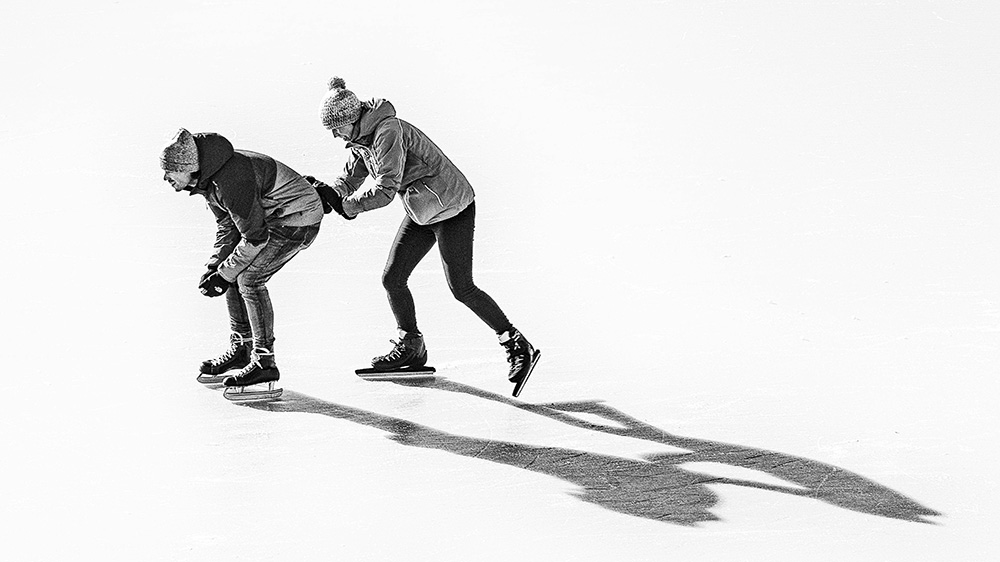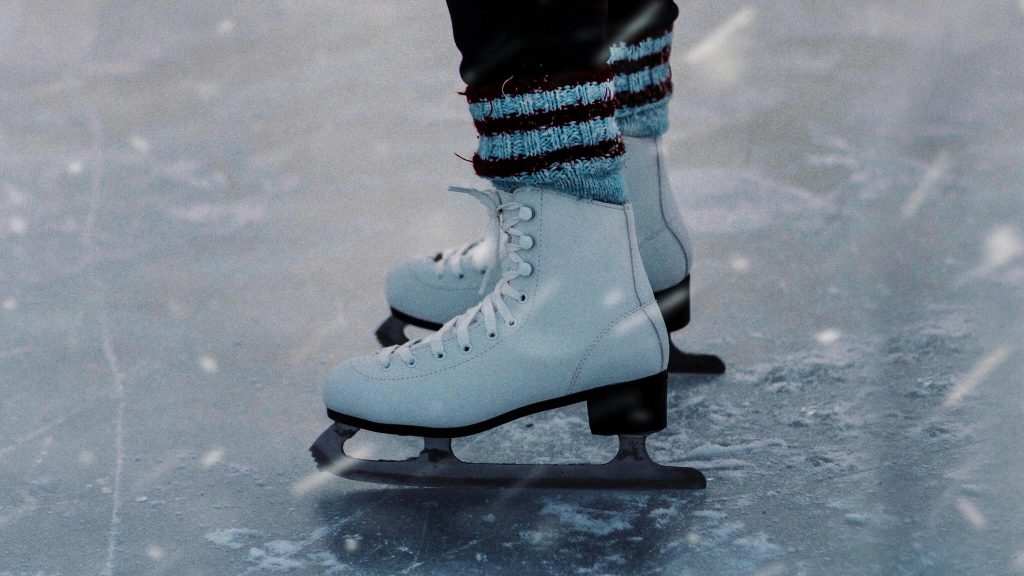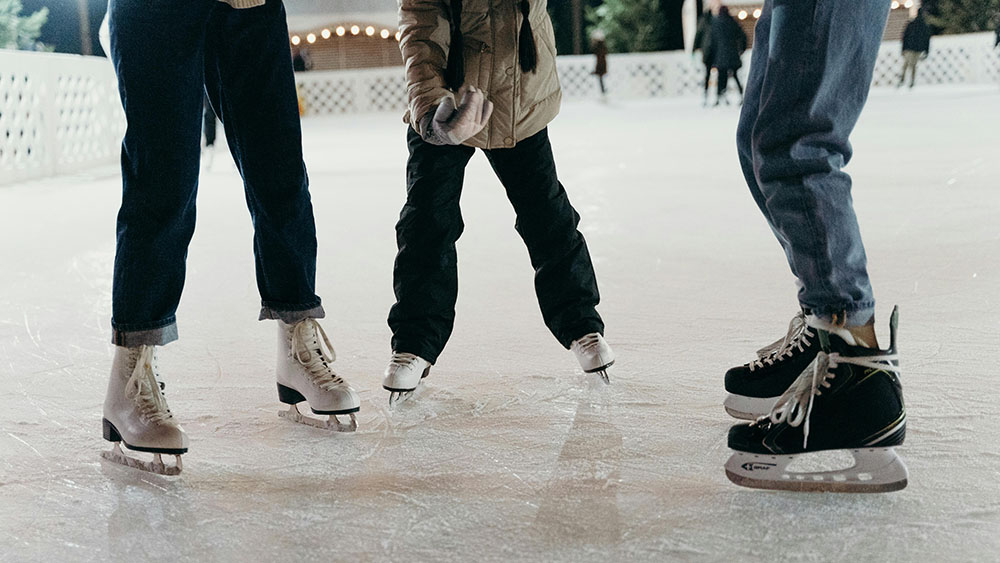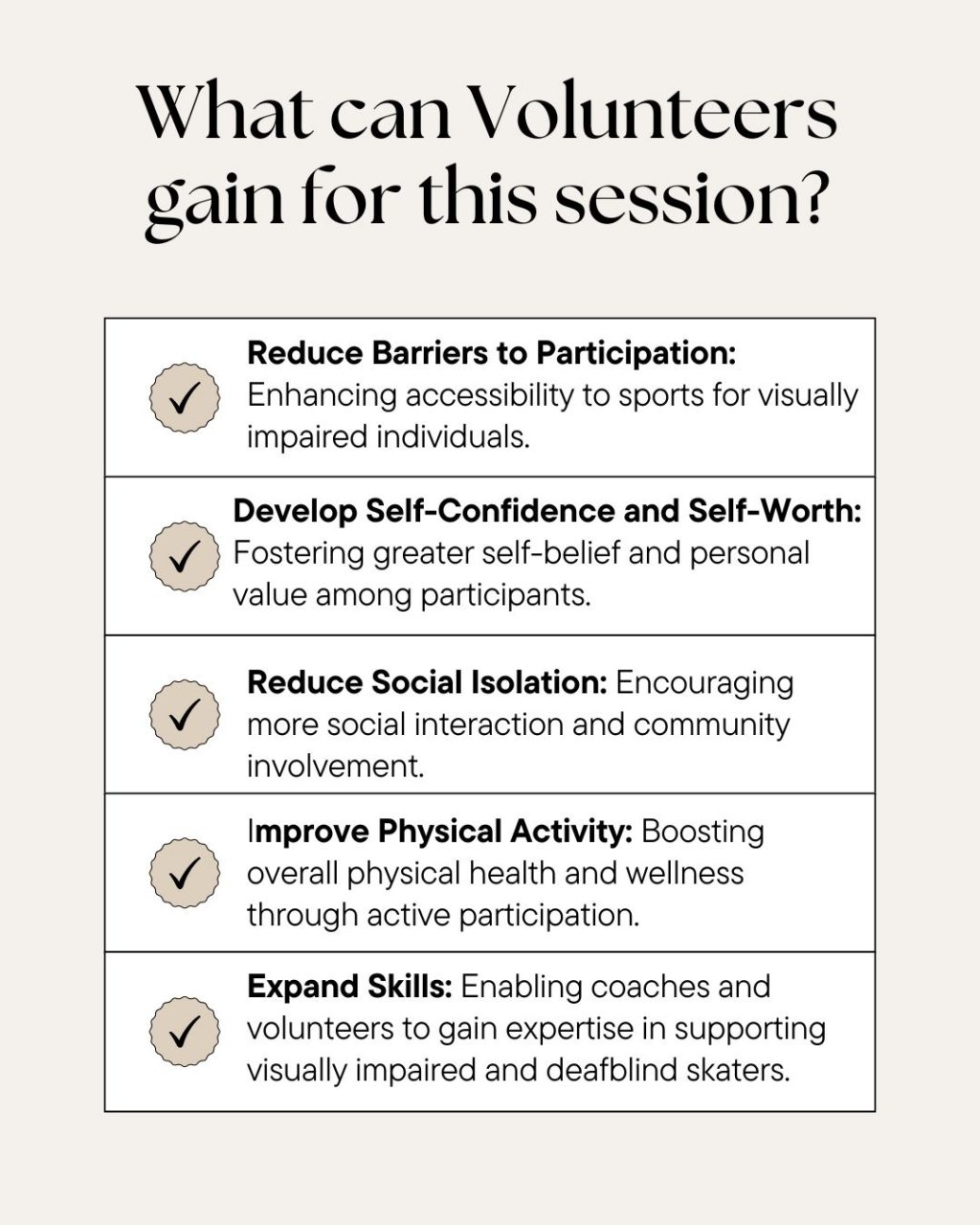The iChope Events CIC provides the IS-vid project in Cardiff to offer transformative ice skating sessions for visually impaired and deafblind individuals. How will they conduct this skating lessons?

The IS-vid project will offer free, secure, and guided ice skating sessions specifically for the visually impaired and deafblind community at the Vindico Arena in April 2024.
The iChope Events CIC is a Community Interest Company (CIC) and their purpose is to help improve the health of our community whilst raising awareness of members of living community.
“We decided to design an inclusive skating sessions exclusively for this community as many of whom would not have had an opportunity to try ice skating before,” said Alison Evans, founder, director and event manager of IS-vid.
The economic deprivation which impacts health and wellbeing as well as reducing social opportunities for many people across the South Wales Valleys and areas of Cardiff is evident. “Individuals experiencing visual impairment feel this even more as they are more reliant on the use of taxis rather than public transport, and learning that somebody who is visually impaired holding a degree, has the same opportunity as securing employment as someone with no qualifications, plus their social isolation during and post covid is not screaming equity to me.” said Alison.

The IS-vid sessions are designed to not only allow individuals with visual impairment to experience ice skating, but the sessions are led by coaches who will teach the skaters how to be safe on the ice and how to ice skate.
Alison said, “While learning to skate is a secondary goal, the primary objectives for the primary skaters, who are visually impaired, include breaking down participation barriers, fostering self-confidence, self-worth, and reducing social isolation, all while enhancing physical activity to boost both emotional and physical wellness.”
“Similarly, the goals for companion skaters align with these aims. For coaches and volunteers, the focus is on expanding their skills and knowledge so they can effectively train and support skaters with visual impairments or deaf blindness.” Alison added.
They have prepared for the unknown challenges of this project. Alison said, “We have a Project Advisory Group (PAG) who include lived experience members who advise us, help us design and test materials and help with things such as changes to the physical environment to make it easier to navigate.”
Also they have visually impaired project advisory board members who advise and attend coaches training sessions, the coaches have also undertaken and continue to undertake enhanced learning from Disability Sport Wales, RNIB Cymru, British Blind Sport and Inclusive Skating as a minimum requirement.

To encourage people to join skating sessions, Alison said, “We have targeted Facebook posts in public and private groups in our target geographical areas, requested or given interviews to radio stations in the target geographic areas, our supporting organisations are sharing the project details with their networks either individuals or organisations across email and social media, audience specific newsletters and across activity groups who work with people who are visually impaired or deaf blind.”
IS-vid project looking for compassionate, patient, and enthusiastic volunteers who are excellent communicators to join our IS-vid project. All volunteers must undergo an enhanced DBS check and complete an induction process. If you’re keen on working directly on the ice, you should be at least a Level 7 Skate UK skater or equivalent. Then please email: info@ichopeevents.co.uk

